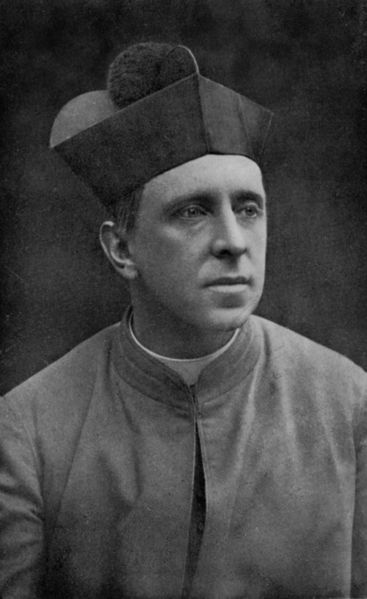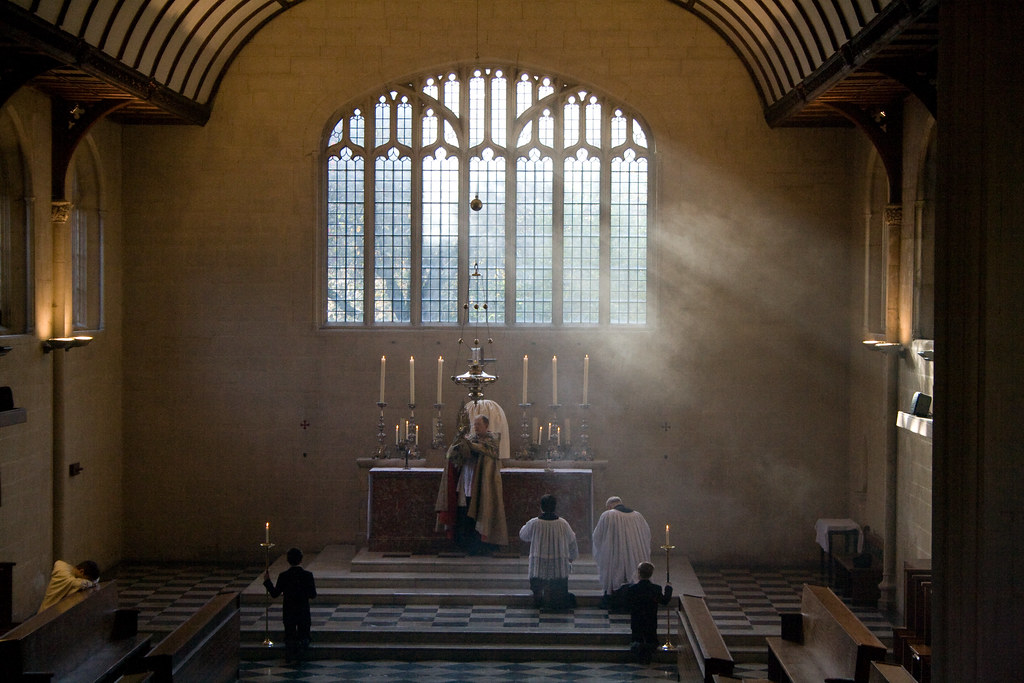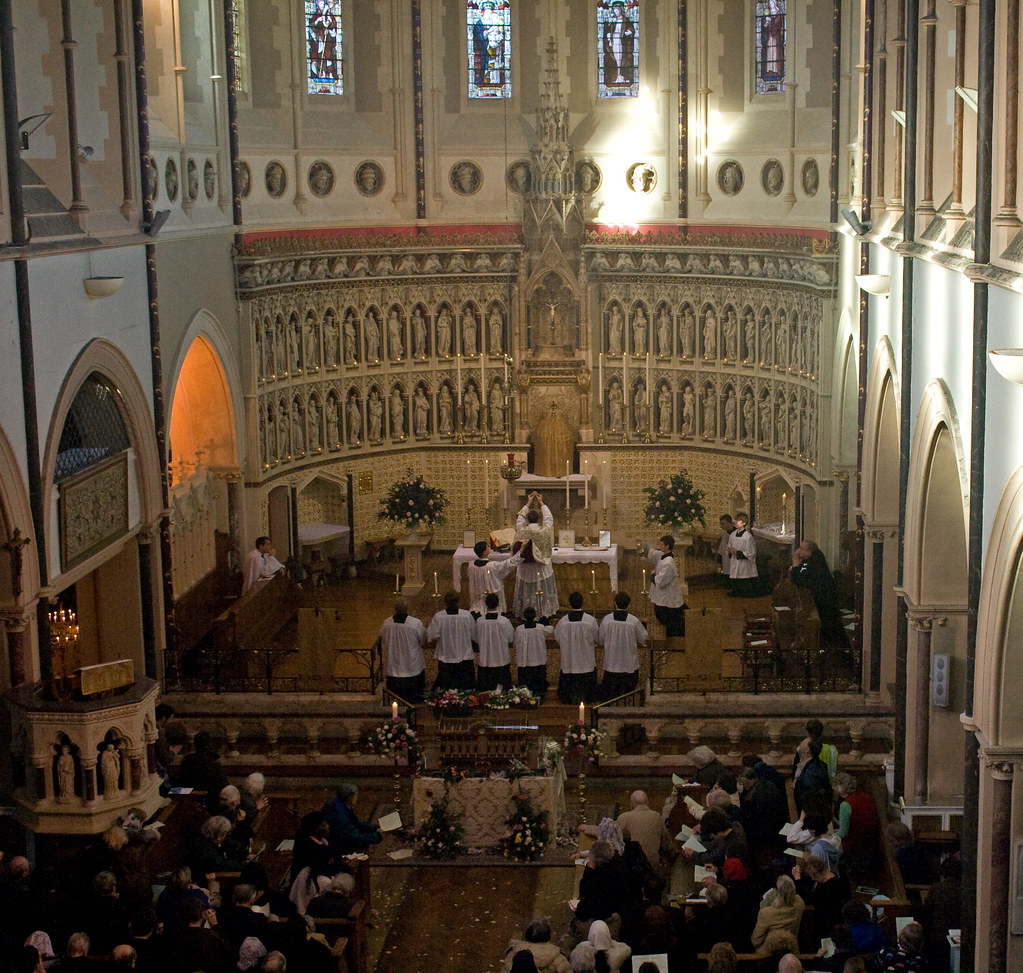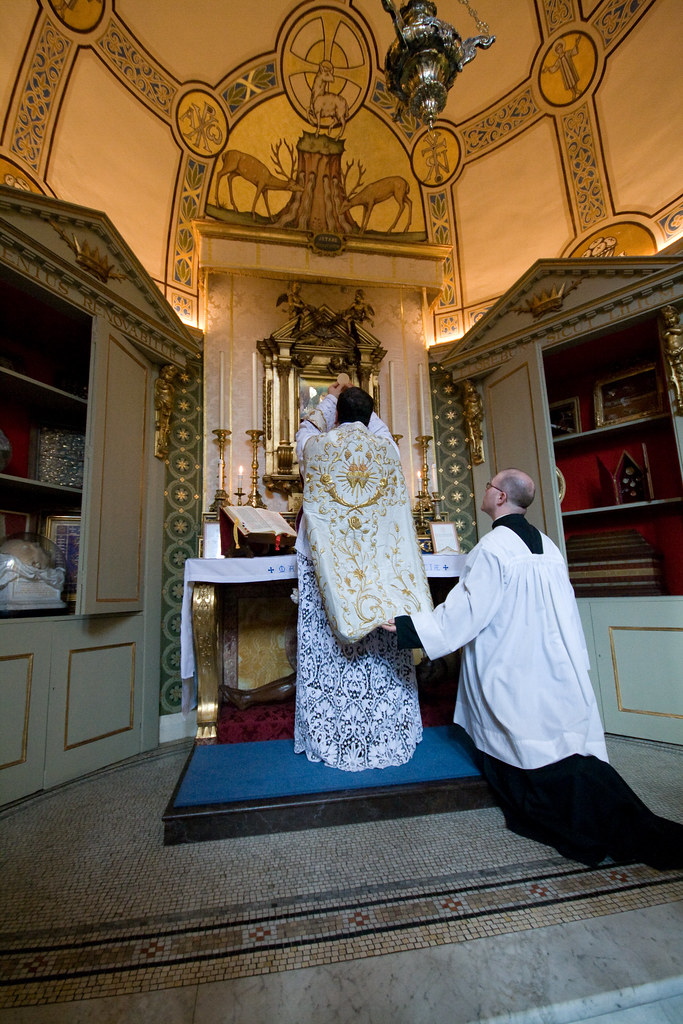 There has been a great deal of discussion about the Holy Father's offer to (former) Anglicans and I have already drawn the obvious parallels with the offer he is likely to make to Traditionalists, should the present talks (which started on Monday) with the SSPX prove successful (and quite likely, even if they do not).
There has been a great deal of discussion about the Holy Father's offer to (former) Anglicans and I have already drawn the obvious parallels with the offer he is likely to make to Traditionalists, should the present talks (which started on Monday) with the SSPX prove successful (and quite likely, even if they do not).Many Catholics find the situation of 'High' Anglicans baffling, and this has found its way into a lot of online discussion. They would do well to read the extensive autobiographical literature on conversion, by former Anglican clergy: J.H. Newman's 'Apologia', and his novel 'Loss and Gain'; R.H. Benson's 'Confessions of a Convert'; Ronald Knox's 'Spiritual Aeneid', Hugh Ross Williamson's 'The Walled Garden'. (Ross Williamson was a founder of the Latin Mass Society.) Part of my own interest in these books stems from my grandfather, Edward Rich (a friend of Ross Williamson), being one of the wave of converts in the 1950s (he wrote it up in 'Seeking the City').
One of the things which characterises these books is the
 sheer difficulty of the move to Rome. The intellectual and emotional effort required by these intelligent and sincere men was immense. The books start with childhood because, in retrospect, that is when the process started, and it took years and years of soul searching, reading, talking, thinking and praying. Newman remarks in the Apologia that he could not have come over earlier without risking regret: as it was, he was ready and he never regretted his conversion.
sheer difficulty of the move to Rome. The intellectual and emotional effort required by these intelligent and sincere men was immense. The books start with childhood because, in retrospect, that is when the process started, and it took years and years of soul searching, reading, talking, thinking and praying. Newman remarks in the Apologia that he could not have come over earlier without risking regret: as it was, he was ready and he never regretted his conversion.How was it that Newman's great intellect was occupied, and pretty continuously occupied, by related questions for so many years, when the answer to his problem seems so obvious? And let me mention, to Anglican readers, as a matter of sociological fact, that the Anglican Communion does not impress Catholics: it seems to have not a leg to stand on,
 historically or theologically.
historically or theologically.The answer is that, whatever its defects, Anglicanism had been the spiritual home of these people, and leaving home is difficult. That is not just an emotional truth; it effects the intellect as well. Intellectually, one has to start from where one is: the education one gets, the premises one accepts, one's intellectual preferences, formed by all sorts of influences. These men were not marginal Anglicans; more than one of them was a convert to Anglicanism, and they all played an important part in Anglican debates over many years. They were Anglicans to the core, but eventually they demonstrated the important fact that wherever you start you can reach the truth if you pursue it with enough vigour and courage for long enough.
There is a fascinating insight in Mgr Benson's book, in which he says that when he looked back at Anglicanism after conversion he couldn't see what had kept him there. It was, he said, like the man in the fairy tale who was entertained in the magnificent fairy palace, and when he left he looked back at it and all he could see was the bare hillside.

Things look completely different when you look at them with different assumptions. And this is not just a philosophical fact, it involves the theological truth encapsulated by St Anselm: Credo ut intelligam: I believe that I may understand. In a way which it is - for obvious reasons - hard to express, it is necessary to believe certain things before one can really understand them. One can understand enough, of course, to make the statement of faith, but not all of the implications, not all of the reality of the thing, will be visible until the proposition becomes part of one's living faith.
Another puzzling factor is the matter of the 'trigger' moment, when some particular issue seems to trigger conversions. Many Anglicans were ridiculed for converting 'because of' women priests. My grandfather, for that matter, converted in the context of the union with the Church of South India; Newman in the context of the Jerusalem Bishopric: these are pretty obscure events you may think. But clearly what happened in each case is that a particular event or issue made things finally clear. In fact what most, perhaps all, of the trigger issues did was to make it clear that Anglicanism was not part of the Universal Church, and could not be finessed into it either. This is a lesson which it seems must be learnt afresh by each generation: perhaps you have to struggle with an issue like that, and lose, to appreciate fully that most Anglicans have no interest in conforming to Catholic and Apostolic positions.
Catholics must be patient with the Anglicans; we must pray for them and extend them whatever help we can. If their path can be eased by unusual arrangements and concessions, where these are compatible with the Faith and the good of the Church they should - as the Holy Father teaches us - be made. English Catholicism is unusual, I think in fact unique, in the Europe after Trent for being constantly refreshed by large numbers of important conversions. This is as much part of Catholic life and culture here as is the more 'tribal' Catholicism of Lancashire and the Irish community, or that of the Recusant English gentry and their chapels. Personally, I value each kind of Catholicism, as representing different ways to triumph over the attempt to impose an alien creed on this country in the 16th Century. The Older Sons should not begrudge the fatted calf being made ready for the Prodigal.
Photos: Newman, Knox, Benson, Pope Benedict.
 spread the word; I know many people, especially in America, have a special interest in Cuba and may wish to help the faithful establish the Traditional Mass there.
spread the word; I know many people, especially in America, have a special interest in Cuba and may wish to help the faithful establish the Traditional Mass there.















